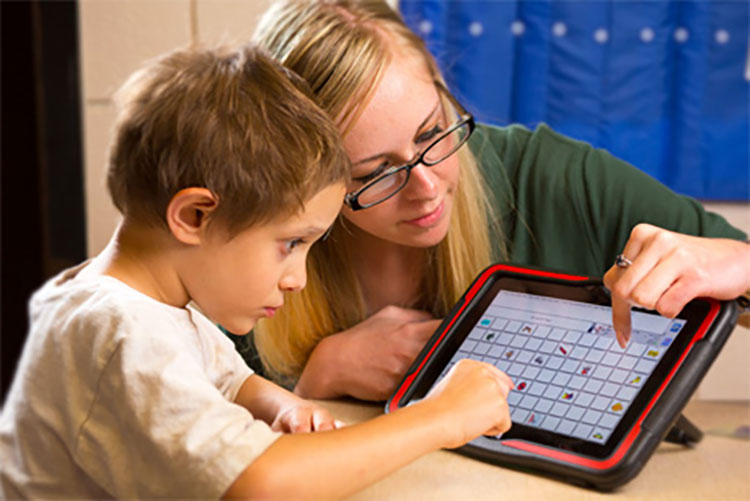Silent Struggles: Speech and Swallowing Challenges in Children with Cerebral Palsy in Oman
Asif Maitheen,
Clinical Instructor of Speech-Language Pathology,
School of Rehabilitation and Medical Sciences,
College of Health Sciences, University of Nizwa
Cerebral Palsy (CP) is widely recognised for its impact on movement and posture, but the daily realities of children with CP often extend far beyond physical mobility. Speech and swallowing difficulties—less visible yet profoundly significant—affect communication, nutrition, and overall health. In Oman, where comprehensive national data is limited, regional studies suggest these challenges mirror global trends, highlighting an urgent need for awareness, intervention, and specialised care.
Speech and swallowing rely on the precise coordination of muscles and neural pathways. In children with CP, these processes are often disrupted. Research indicates that over half of children with CP experience speech disorders, with many remaining non-verbal. Swallowing difficulties, or dysphagia, are particularly common in children with severe motor involvement, sometimes affecting up to 99% of cases. .png)
Spastic CP typically restricts oral and respiratory movements, impacting articulation and bolus control. In contrast, dyskinetic or ataxic CP disrupts timing and coordination, resulting in inconsistent resonance, abnormal prosody, and chewing difficulties. Clinically, these issues may manifest as drooling, coughing during meals, or prolonged feeding times. Instrumental assessments, including videofluoroscopy and fiberoptic endoscopic evaluation, often reveal hidden aspiration risks—even when outward symptoms appear mild.
Feeding and communication challenges have far-reaching consequences. Dysphagia can lead to malnutrition, poor growth, and micronutrient deficiencies, creating a cycle that undermines motor recovery, immunity, and learning. Speech difficulties limit educational participation and social interaction, while families shoulder both practical and emotional burdens.
Studies from Arabic-speaking countries consistently show higher rates of malnutrition among children with CP than their peers. Cognitive and language challenges, including attention, comprehension, and vocabulary deficits, further restrict communication and learning opportunities, reinforcing the need for early and sustained intervention.
.png) Speech-language pathologists (SLPs) are central to multidisciplinary CP care. Evidence-based interventions include oral-motor exercises to strengthen muscles, adjustments in head positioning, food texture modification, adaptive feeding tools, AAC devices ranging from low-tech boards to advanced speech-generating technology, and caregiver training to extend therapy beyond the clinic. Early, individualised intervention has been shown to significantly improve health, communication, and quality of life for children with CP.
Speech-language pathologists (SLPs) are central to multidisciplinary CP care. Evidence-based interventions include oral-motor exercises to strengthen muscles, adjustments in head positioning, food texture modification, adaptive feeding tools, AAC devices ranging from low-tech boards to advanced speech-generating technology, and caregiver training to extend therapy beyond the clinic. Early, individualised intervention has been shown to significantly improve health, communication, and quality of life for children with CP.
Oman has made considerable strides in services for children with disabilities, including early intervention centres, hospital-based rehabilitation, and private clinics. Organisations such as the Association of Early Intervention for Children with Disability and universities, including the University of Nizwa, contribute through teaching, research, and rehabilitation programs.
Yet gaps remain. National-level data on CP-related speech and swallowing difficulties are limited, and access to specialised care is uneven, especially in remote areas like Al Dakhiliyah. Advanced assessments such as videofluoroscopy and FEES are not always accessible, and clinicians with advanced pediatric dysphagia training remain few.
Low-cost interventions—caregiver education, safe feeding postures, food texture modification, and low-tech AAC—serve as practical starting points. These should be integrated within a continuum of care that includes access to specialised diagnostics and expert guidance. Marking World Cerebral Palsy Day on October 6 underscores the urgency of advocacy, awareness, and investment to improve outcomes for children and families affected by CP.
Speech and swallowing difficulties in children with CP are often hidden but carry profound consequences for health, development, and quality of life. Early recognition, evidence-based interventions, and a multidisciplinary approach are essential. In Oman, building on existing foundations while addressing gaps in access, training, and research will improve outcomes for children and families alike. Advocacy, awareness, and practical interventions are not just clinical necessities—they are moral imperatives.



